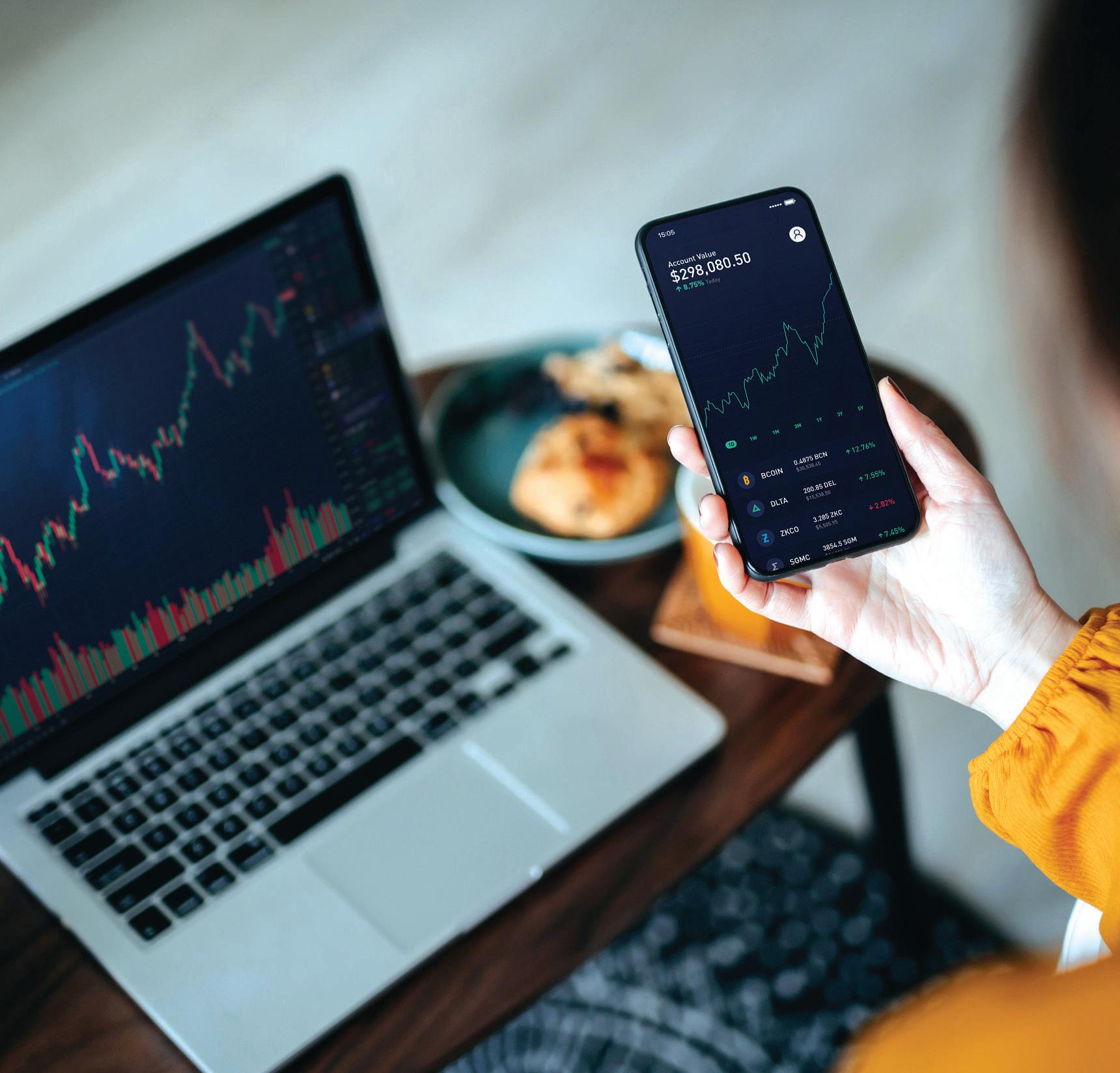
3 minute read
The fundamentals of DIY investing


Advertisement


Photo: Getty Images
DIY investorswho play the share markets, crypto,derivatives, and precious metals needtobecareful.
Good investing hasreal longterm benefits. Small amounts invested frequently ingood quality investments can add uptoa big chunk of money overa lifetime.
Firsttime investors oftenpatthemselves on the back about gains overa week or two andreallycan’t envisage their investments going down- although most have hadto cometothat conclusion in 2022.
They may be doing little more than placing betson individual shares or highly volatile cryptocurrencies. Some are walking a fine line that could leadtobig losses.
Every new boom creates a crop of firsttimers who think theycan play the markets better than theexperts, or simply have a knackfor picking winners.Ask the same individuals 10 years later andfew will have actually beaten the marketsif they’re truthful.
“Trading”for most first time investors is based ona one-way bet that their chosen investment is sogood itcan only evergo up invalue. Theyfallfor nearly behavioural economicsfailing knowntoman and woman.
Watching an investmentgoup and up often makes new investors think they have a specialtouch. Anyone who happenedto buy Bitcoin on July 16 last year when itwas tradingat$45,041NZD would havewatched their moneygoup and up and upto$86,493 by November 5, 2021. That’sa 92% rise. The only troublewas anyone who didn’t sell on that date saw their ‘investment’go into freefall downto$30,046 on June 17, meaning they’dlost money. At the end of September itwas hovering around $33,000. It’s noticeable that some of the big swinging cryptoinvestorsfrom last year have gone quiet.
Some traders are successful. But they’re sitting there investing full-time,watching the marketsday in,day out. Rarely, however, can they out gun theanalystslongterm. Professionals havestudied finance or business, work inteams, have the best softwaretotrade, short the marketand hedge their positions, says Andrew Bascand, managing director at HarbourAsset Management.
Unfortunately, the “research” that some new investors use is social media commentary,which isn’t much differentto thevaccine “research” that has sent many a NewZealander down therabbit hole.The Financial MarketsAuthority (FMA) published research about the new breed of DIY online investor late last year.Most areembracing the positives, not fallingfor the pitfalls.
However, the FMAurges investorstofollow the five Ds of DIY investing. They are: Do due diligence and learn about thecompanies or currencies; drip-feed money in over time, accepting it’s impossibletopick thetop and bottom of thecycle; diversify,across multiplecompanies,investment types and geographical markets; don’t freak out if marketsgodown; and if in doubt talkto a financial adviser.
Investorscan be lucky with onecompany. Or unlucky. Back in 2003, investors in Fletcher Building (FBU) probably thought itwas one of thestrongest companies in NewZealand.Yet the share price rose by 202 percent in the19years from 2003to2022, comparedtothe overall NZX that roseby more than 600 percent, more than three times thereturn of FBU.
Buyinga dud is one of thereasons people buy funds of, say, the NZX50 or S&P 500. They’respreading their risk across 50 or 500 shares, so the odd FBU isn’tgoingtoding the overallreturns.
There’s alot to be learned from having a flutter through Sharesies, Hatch or Stake. Losinga small, or evenrelatively largesum of money while youngcan be an extremely valuable learning lesson.
There is nothing wrong with putting a few bucks inRocketLab, Apple or even FBU shares, provided it’s notsomeone’shouse deposit orretirement fund.
If youwanttotry out share investing, pick onestock suchasXero,Auckland Airport, Apple, orTesla, andread absolutely every report that comes out about it and learn as it rises andfalls invalue. Then dipa toe in with a small amount of money andwatch what happens over time.





